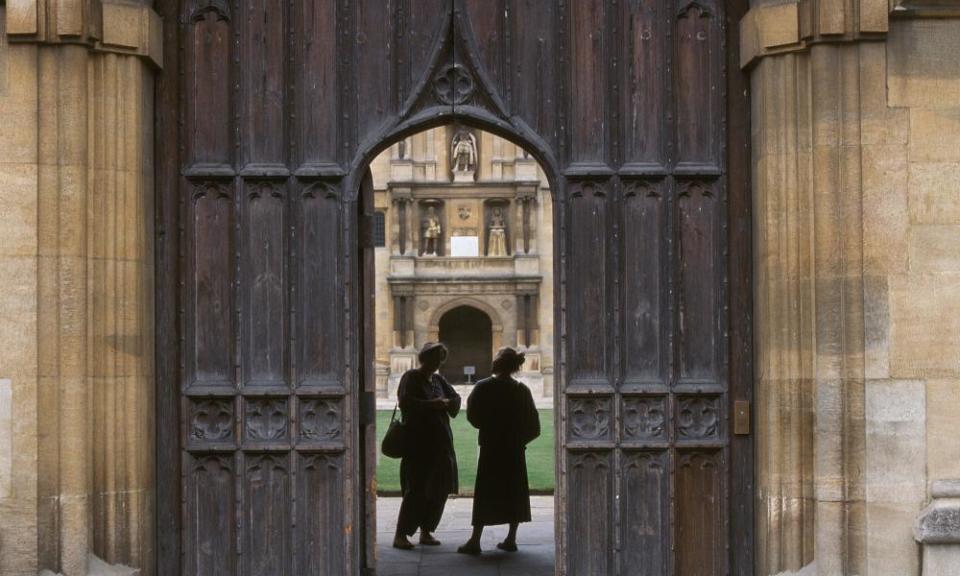What does a rock look like? Oxford reveals sample interview questions

How you listen to music, what a rock looks like, and what historians cannot know about the past are among this year’s list of sample interview questions published by Oxford University.
The annual release of interview questions and suggested ways of answering them are designed to prepare aspiring students for the ordeal of trying to get into one of the world’s most elite institutions.
Some of the questions are deceptively simple ways of exploring a candidate’s knowledge. Candidates applying for an earth sciences place are shown a rock and asked to explain what it looks like.
Tell me what this rock looks like?
If you’ve ever wondered what you might get asked in an Oxford admissions interview, we’ve just released a series of sample questions from some of the tutors who conduct them... https://t.co/i1O5NUMqJL pic.twitter.com/2FM3XRppqw— Oxford University (@UniofOxford) October 18, 2018
Would-be theology students are asked to explain the value of religion whether or not God exists.
Other questions are more tricky. Those wanting to study medicine are asked: Is it surprising that viruses cause human diseases? Chemistry candidates are asked to calculate how many different molecules can be made from six carbon atoms and 12 hydrogen atoms.
Oxford’s director of admissions, Samina Khan, advises candidates not to be afraid to give plain answers at first. She said: “It is often best to start responding by making very obvious observation and building up discussion from there – solving the problem quickly is less important than showing how you use information and analysis to get there.”
She added: “It’s important to remember that most interviews build on material students will have encountered in their studies or touch on areas students mention in their personal statements. Most commonly tutors will provide candidates with material to prompt discussion – for example, a piece of text, an image, or a sample experiment whose results they are asked to consider.”
Laura Tunbridge, from St Catherine’s College, explained why a music candidate might be asked to explain the different ways they listen to music. She said: “The question allows students to use their own musical experiences as a starting point for a broader and more abstract discussion about the different ways people consume music, the relationship between music and technology, and how music can define us socially.
“I might also expect to discuss whether particular types of music suit being listened to in particular ways; whether listening on headphones changes the way you experience what’s going around you; and what makes some soundtracks better than others.”
Siân Pooley, from Magdalen College, advised history candidates how to explain what they cannot find out about the past. “A candidate might start off by saying that they had been studying Tudor England and historians don’t know much about the lives of the poor because they were less likely to be able to write,” she said.
“Given these lower levels of literacy, we could then talk about what sources historians can use to learn about the lives of the majority of the population in 16th-century England. This would require the candidate to think creatively about alternative sources (and their drawbacks), such as, for instance, criminal court records in which people who could not write were required to give oral testimony as witnesses.
“They might want to think about how structures of power have altered over time or about how social norms for what can be recorded and kept in archives have changed. This is the sort of conversation that no candidate could predict in advance.”

 Yahoo News
Yahoo News 